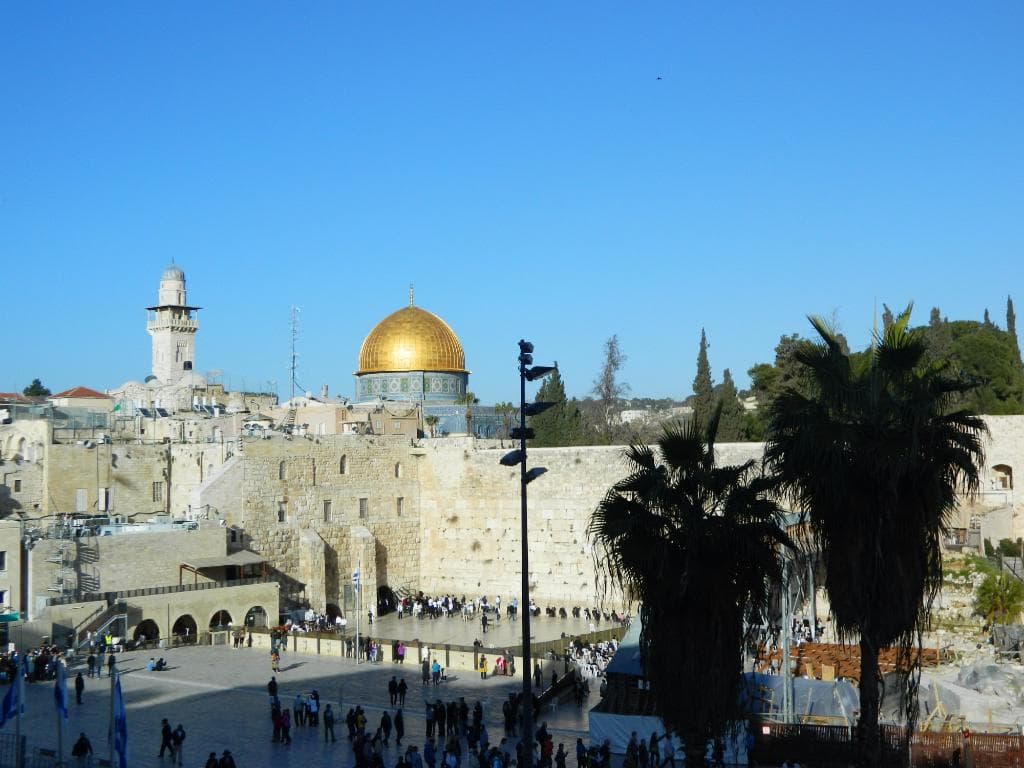
Old City Jerusalem
A city steeped in millennia of history, where three major religions converge. Explore ancient alleys, sacred sites, and vibrant markets.
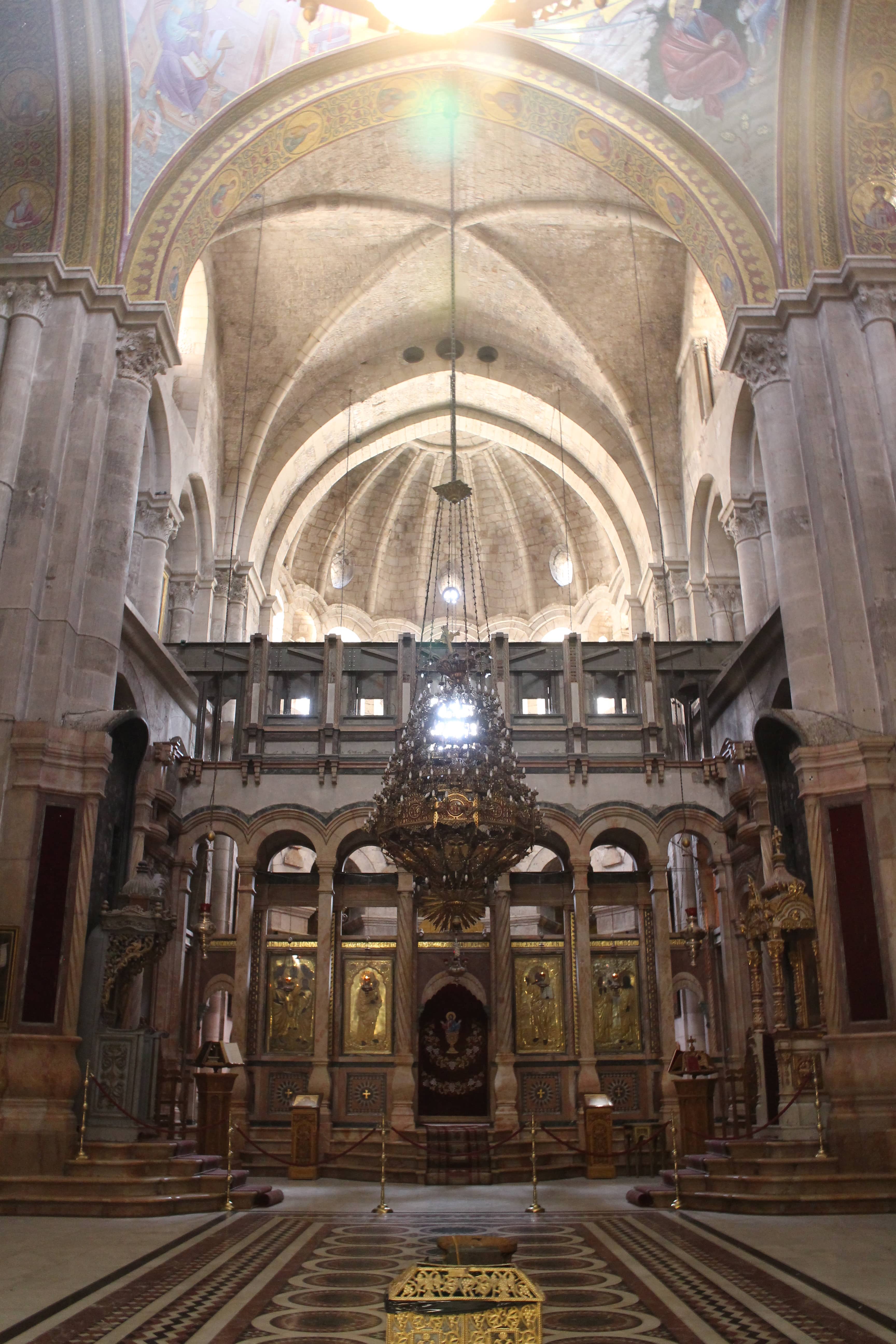
Highlights
Must-see attractions
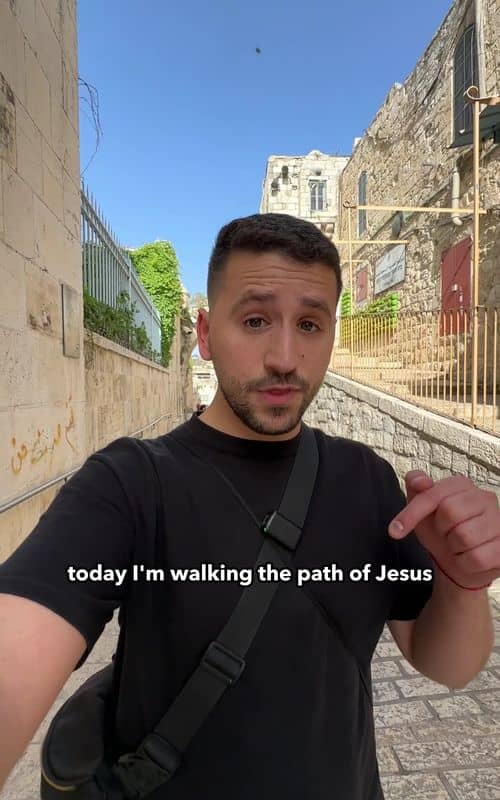
Social
From TikTok & Reddit
Best Time
Magical atmosphere at the Kotel

Old City Jerusalem
Best Time
Magical atmosphere at the Kotel

Highlights
Must-see attractions
A city steeped in millennia of history, where three major religions converge. Explore ancient alleys, sacred sites, and vibrant markets.
"The Old City of Jerusalem is a place that touches your soul, a living testament to faith and history."
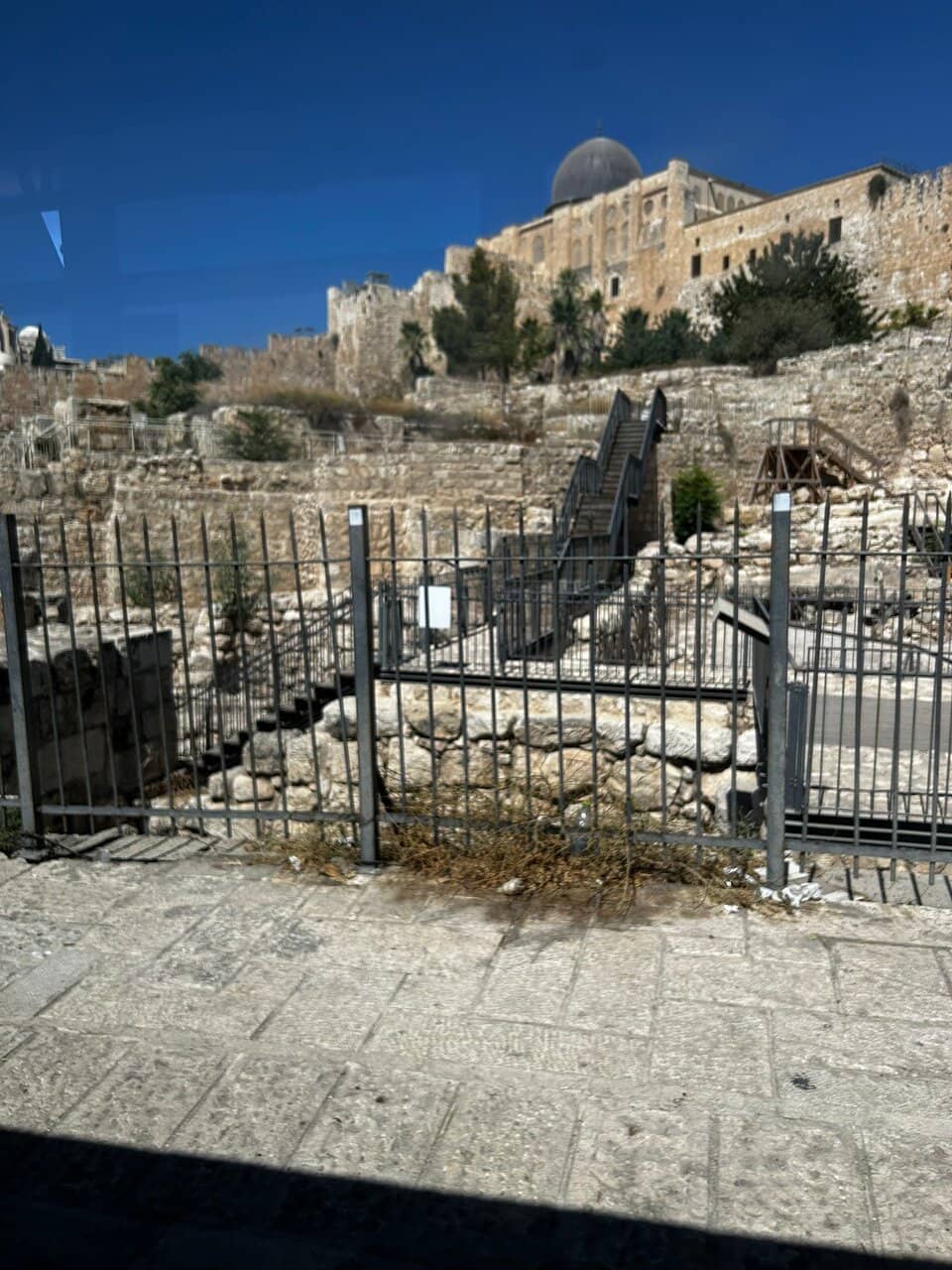
Dress Modestly for Holy Sites
Cover shoulders & knees. Kippahs provided at Western Wall. :pray:
Book Guided Tours
Enhance understanding of history & significance. Negotiate fees upfront. :walking:
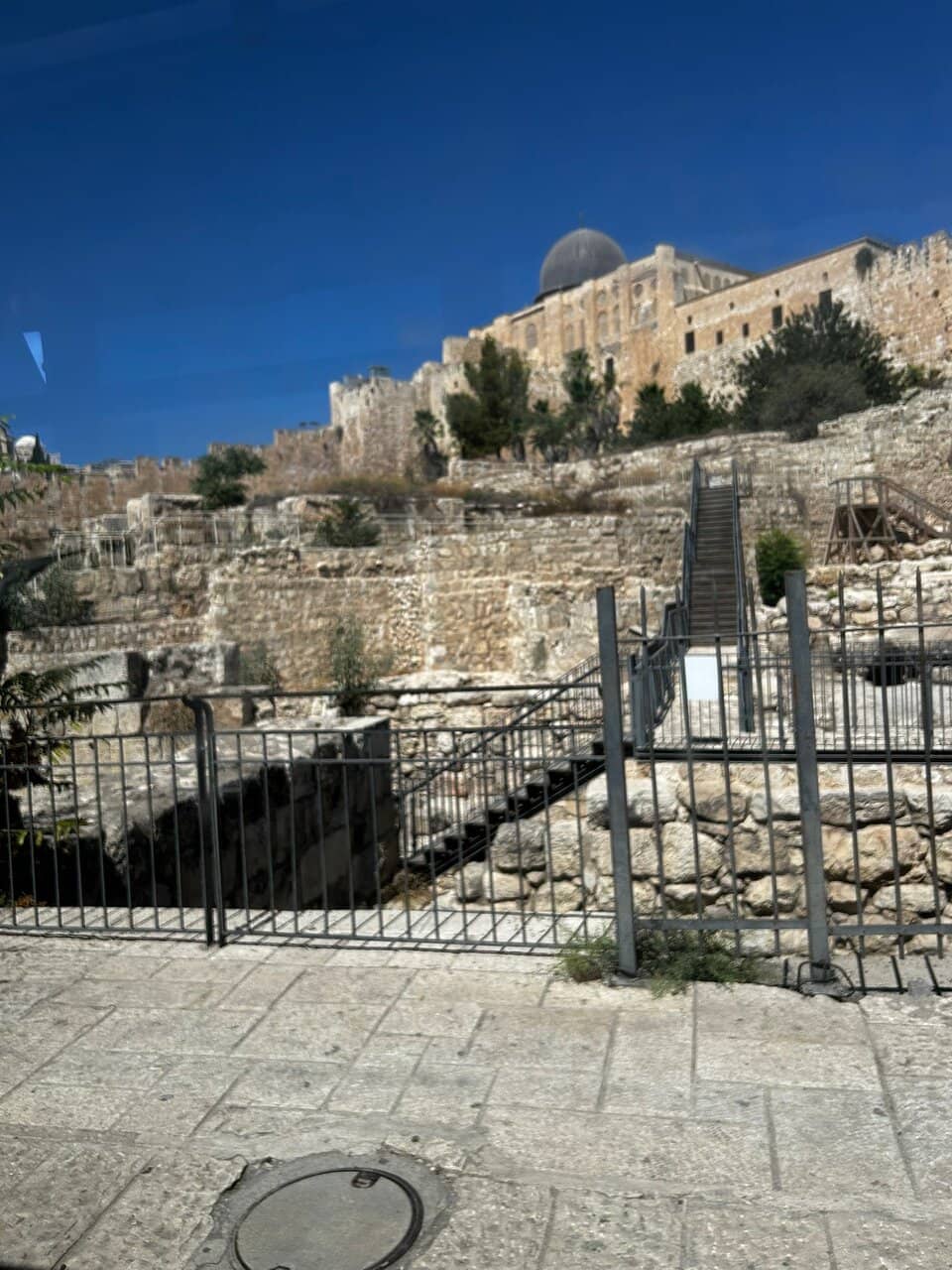
Highlights
Discover the most iconic attractions and experiences

Church of the Holy Sepulchre
Christian Quarter
The holiest site for many Christians, believed to be where Jesus was crucified and buried. A must-see for its profound spiritual significance.

Western Wall (Kotel)
Jewish Quarter
The last remnant of the ancient Jewish Temple, a deeply spiritual place for prayer and reflection. Experience its powerful atmosphere, especially on Friday nights.
Via Dolorosa
Christian Quarter
Walk the path believed to be Jesus's final journey. Each of its 14 stations marks a significant moment, offering a poignant historical and spiritual experience.
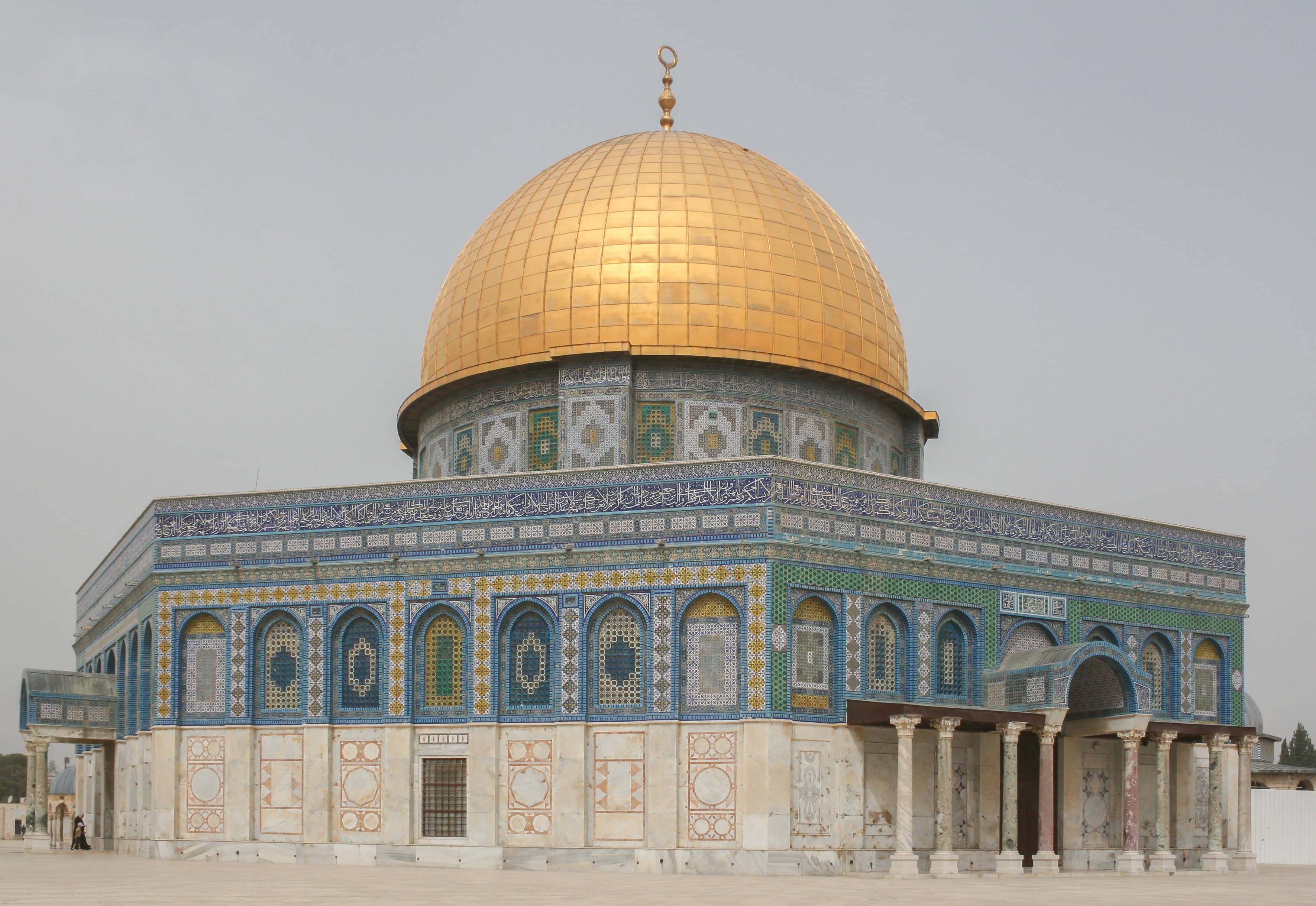
Al-Aqsa Mosque and Dome of the Rock
Muslim Quarter
Iconic Islamic landmarks offering stunning architecture and immense religious importance. Non-Muslims may have limited access times.
Plans like a pro.
Thinks like you
Planning Your Visit
Navigating the Old City's Sacred Spaces
Embrace the Layers of History
Best Times
Insider Tips
from TikTok, Instagram & Reddit
Dress Modestly for Holy Sites
Cover shoulders & knees. Kippahs provided at Western Wall. :pray:
Book Guided Tours
Enhance understanding of history & significance. Negotiate fees upfront. :walking:
Beware of Tourist Traps
Authentic souvenirs from church-affiliated shops. Avoid street vendors. :shopping_cart:
Stay Aware of Surroundings
Jerusalem is safe, but use common sense. Avoid tense areas. :shield:
Tips
from all over the internet
Dress Modestly for Holy Sites
Cover shoulders & knees. Kippahs provided at Western Wall. :pray:
Book Guided Tours
Enhance understanding of history & significance. Negotiate fees upfront. :walking:
Beware of Tourist Traps
Authentic souvenirs from church-affiliated shops. Avoid street vendors. :shopping_cart:
Stay Aware of Surroundings
Jerusalem is safe, but use common sense. Avoid tense areas. :shield:
Explore the Tunnels
Kotel Tunnels offer a unique historical perspective. Book in advance! :ticket:
Hydrate and Wear Comfy Shoes
Lots of walking on uneven surfaces. Carry water, especially in summer. :athleticshoe: :waterwave:
What Travellers Say
Reviews Summary
Visitors consistently praise the Old City of Jerusalem for its unparalleled historical and spiritual significance, calling it a deeply moving and unforgettable experience. The sheer density of sacred sites and ancient architecture leaves a lasting impression. However, some find the overwhelming crowds and persistent touts detract from the atmosphere, and the commercialization of certain areas can feel inauthentic.
What People Like
What People Dislike
Frequently Asked Questions
🚇 🗺️ Getting There
The most common way to reach the Old City is by taxi or Gett (ride-sharing app) to one of its main gates, like Jaffa Gate or Damascus Gate. Public buses also serve the area, and the Jerusalem Light Rail can get you close. For late-night arrivals, a taxi to Jaffa Gate is recommended, avoiding Damascus Gate.
The Old City is best explored on foot due to its narrow, winding alleys. While it's compact, the terrain can be uneven. Public transport like the light rail is useful for reaching the Old City from other parts of Jerusalem.
Private vehicles are generally not allowed inside the Old City walls. There are parking lots near the gates, such as at Jaffa Gate, where you can park and then walk in.
The four quarters (Jewish, Christian, Muslim, Armenian) are interconnected by a network of alleys and streets. Walking is the only way to navigate between them. Be prepared for crowds, especially during peak times.
While all gates offer access, some travelers suggest avoiding Damascus Gate late at night due to its less tourist-friendly atmosphere. Jaffa Gate is often recommended as a more central and accessible entry point.
🎫 🎫 Tickets & Entry
No, there are no tickets required to enter the Old City itself. However, specific sites within the Old City, such as museums or certain religious attractions, may have admission fees.
The Old City is always accessible, but individual shops, sites, and religious institutions have their own operating hours, which can vary significantly. It's best to check the specific hours for any place you plan to visit.
Yes, many of the most significant sites are free to visit, including the Western Wall, the Church of the Holy Sepulchre (though donations are welcome), and walking through the various quarters.
Access for non-Muslims to the Temple Mount/Haram al-Sharif, where the Dome of the Rock and Al-Aqsa Mosque are located, is restricted to specific visiting hours and requires adherence to a dress code. Check current access policies before your visit.
Yes, the Western Wall Tunnels tour requires a ticket and is highly recommended. It's advisable to book these tours in advance as they often sell out.
🎫 🧭 Onsite Experience
The Old City is divided into four distinct quarters: the Jewish Quarter, the Christian Quarter, the Muslim Quarter, and the Armenian Quarter. Each has its own unique character, religious sites, and atmosphere.
The Via Dolorosa is the path believed to be Jesus's route to crucifixion, marked by 14 stations. Walking the entire path, including stops for reflection, can take about 1-2 hours.
Modest dress is essential, especially when visiting religious sites. This means covering shoulders and knees. At the Western Wall, men will need to wear a kippa (skullcap), which are usually available at the entrance.
While generally safe for tourists, it's advisable to be aware of your surroundings and avoid walking alone late at night. Some Redditors suggest caution for Jewish visitors in certain areas.
Key highlights include the Church of the Holy Sepulchre, the Western Wall, the Via Dolorosa, and the Dome of the Rock. Exploring the markets and alleys of each quarter is also a must.
🍽️ 🍽️ Food & Dining
The Jewish Quarter is known for its good food options, with many highly regarded eateries. You can also find delicious burekas near the entrance to Machne Yehuda market and try 'Palestinian pizza' in East Jerusalem.
While some tourist-oriented restaurants can be pricey, you can find more affordable options, especially in the markets. Look for local bakeries and street food vendors for budget-friendly meals.
Don't miss trying burekas, a savory pastry. 'Palestinian pizza' (bread with meat filling) is also a local specialty. Exploring the Machne Yehuda market offers a wide variety of tastes.
Some rooftop restaurants and cafes offer stunning views of the Old City, particularly from the Jewish Quarter or areas overlooking the Western Wall.
Yes, the Jewish Quarter has numerous kosher restaurants and eateries. It's advisable to check for kosher certification symbols when dining in this area.
📸 📸 Photography
The Western Wall, the golden Dome of the Rock, the narrow alleys of the souks, and panoramic views from the Mount of Olives are all incredibly photogenic. The Golden Gate also offers a unique shot.
Photography is generally allowed, but be respectful when taking pictures of people, especially in religious areas. Avoid intrusive photography at holy sites.
Early morning or late afternoon offers the best light for photography, with softer shadows and a warmer glow. Golden hour can create magical shots of the ancient architecture.
Photography is usually permitted inside the Church of the Holy Sepulchre, but it's always a good idea to be discreet and respectful of worshippers.
The Mount of Olives provides a breathtaking panoramic view of the entire Old City, including the Dome of the Rock. Some rooftops in the Jewish Quarter also offer excellent vantage points.
For Different Travelers
Tailored advice for your travel style
👨👩👧 Families with Kids
Look for interactive elements like the Tower of David Museum, which often has family-friendly exhibits. Keep in mind that the terrain can be challenging for strollers, and crowds can be overwhelming. Bringing plenty of snacks and water is crucial, and planning for breaks in quieter spots will make the visit more enjoyable for everyone.
💰 Budget Travelers
Consider staying in hostels within or near the Old City for cost-effective accommodation. Free walking tours are available, though tipping the guide is customary and appreciated. Be mindful of tourist traps for souvenirs; look for more authentic items from church-affiliated shops.
🙏 Religious Pilgrims
Remember to adhere to the dress codes for all religious sites. Friday evenings at the Western Wall are particularly significant. Consider booking guided tours focused on your specific faith to gain deeper insights and access to certain areas.
Deep Dives
In-depth insights and expert knowledge
The Four Quarters: A Microcosm of Jerusalem
Each quarter has its own rhythm and atmosphere. The Jewish Quarter, largely rebuilt after 1967, offers a mix of historical sites and modern amenities. The Christian Quarter is a hub of activity for pilgrims and tourists, with numerous churches and religious schools. The Muslim Quarter is a sensory explosion of sights, sounds, and smells, with its vibrant markets and the spiritual heart of Islam. The Armenian Quarter, often quieter, provides a sense of serene history. Understanding these divisions is key to appreciating the multifaceted nature of the Old City.
Exploring these quarters is not just about sightseeing; it's about experiencing the living history and diverse communities that have called Jerusalem home for centuries. Be prepared for crowds, especially in the Muslim and Christian Quarters, and always be mindful of local customs and religious observances.
Walking the Via Dolorosa: A Spiritual Journey
The journey begins near the Lion's Gate and winds through the narrow alleys of the Muslim and Christian Quarters. The first few stations are located within the Muslim Quarter, including the site of Jesus's condemnation and the first fall. As the path progresses into the Christian Quarter, it passes by sites associated with his carrying the cross and encounters with Mary. The final stations are within the Church of the Holy Sepulchre, where the crucifixion, burial, and resurrection are believed to have occurred.
While the official stations are marked, the experience is deeply personal. Some visitors opt for guided tours, which can provide historical context and spiritual insights, while others prefer to walk independently, reflecting on each station. It's a powerful way to engage with the history and faith that define Jerusalem.
The Western Wall and its Tunnels: Connecting with History
Beneath the Western Wall lies a hidden world: the Western Wall Tunnels. These tunnels offer an incredible opportunity to explore the full extent of the ancient wall, revealing structures and artifacts from the Second Temple period that are not visible above ground. Walking through these excavated chambers provides a tangible connection to Jerusalem's deep past.
Visiting the Western Wall Tunnels is a highly recommended experience for anyone interested in the history of Jerusalem. It's essential to book your tickets in advance, as tours are guided and have limited capacity. The experience offers a unique perspective on the scale and engineering of the ancient Temple complex.

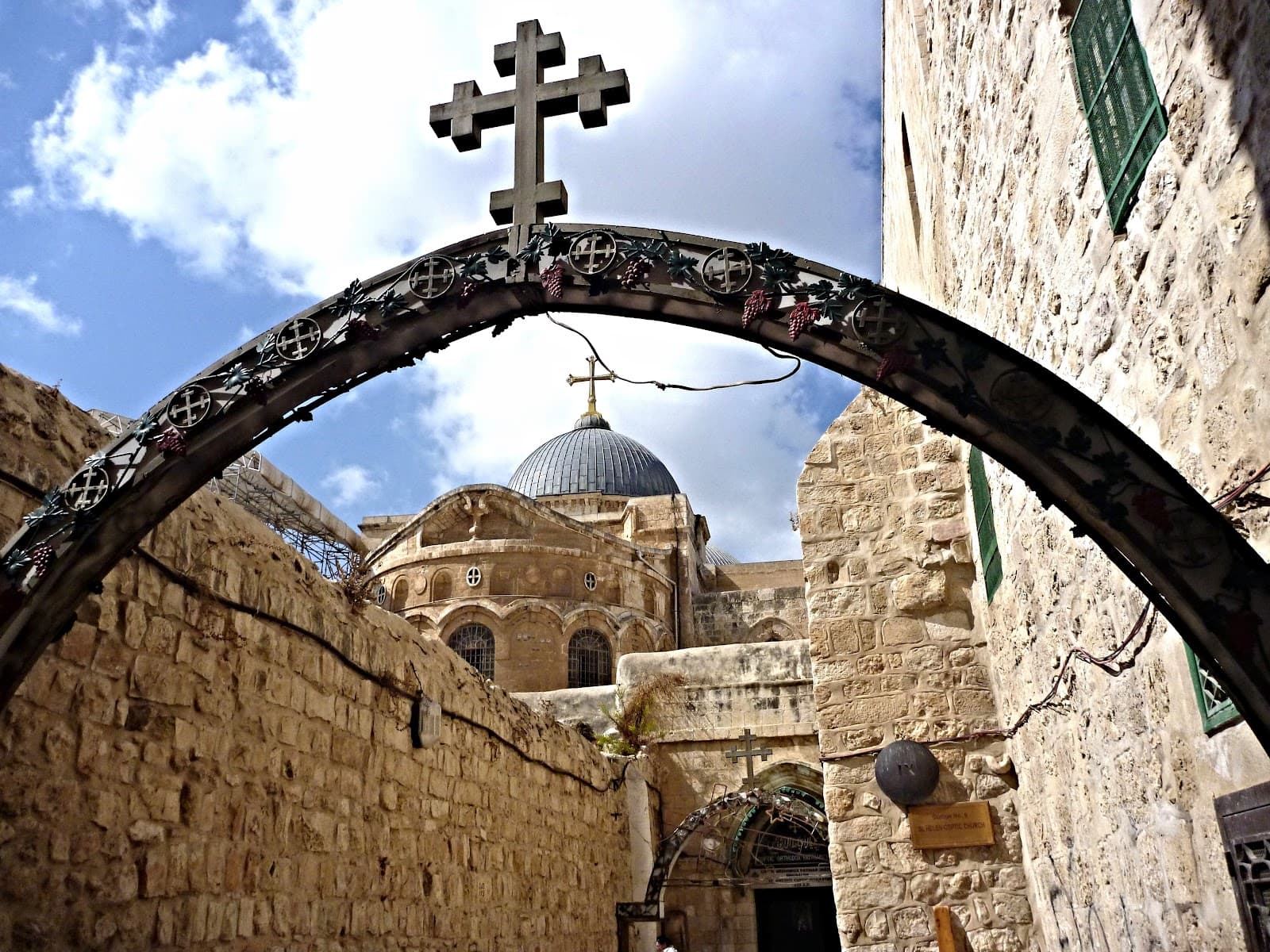




Social
from TikTok, Instagram & Reddit